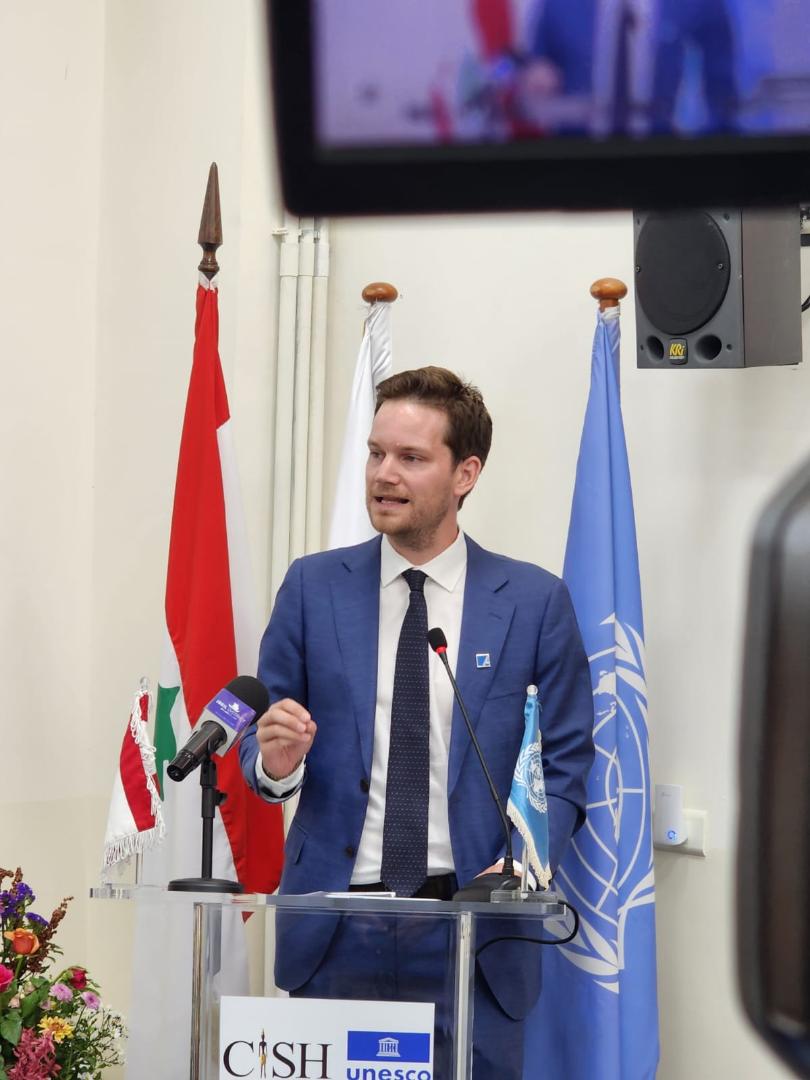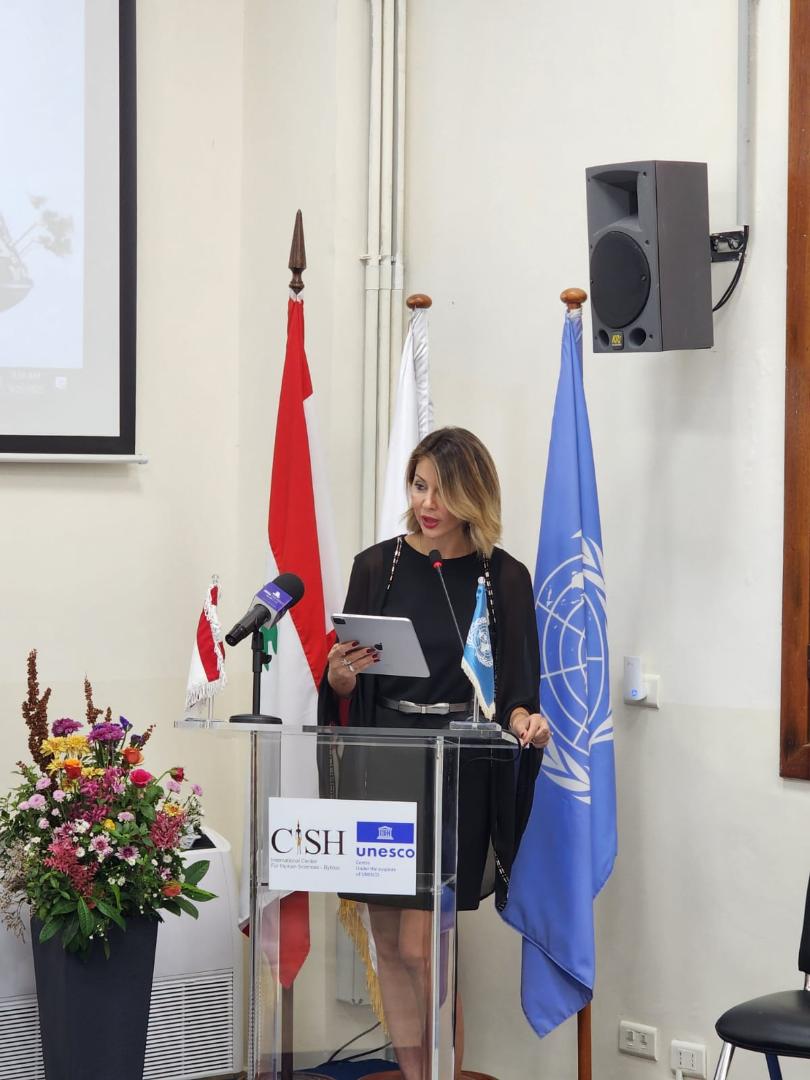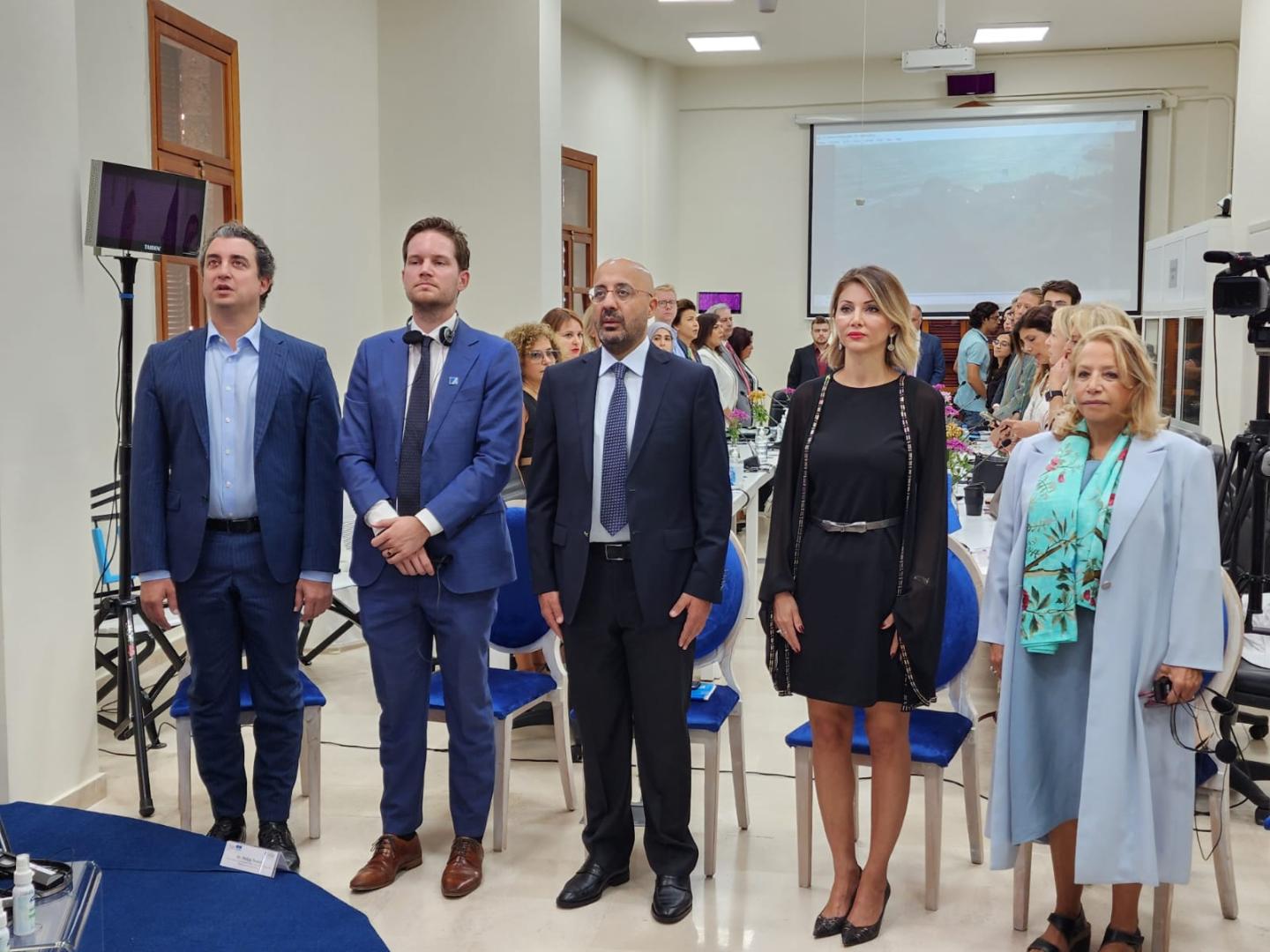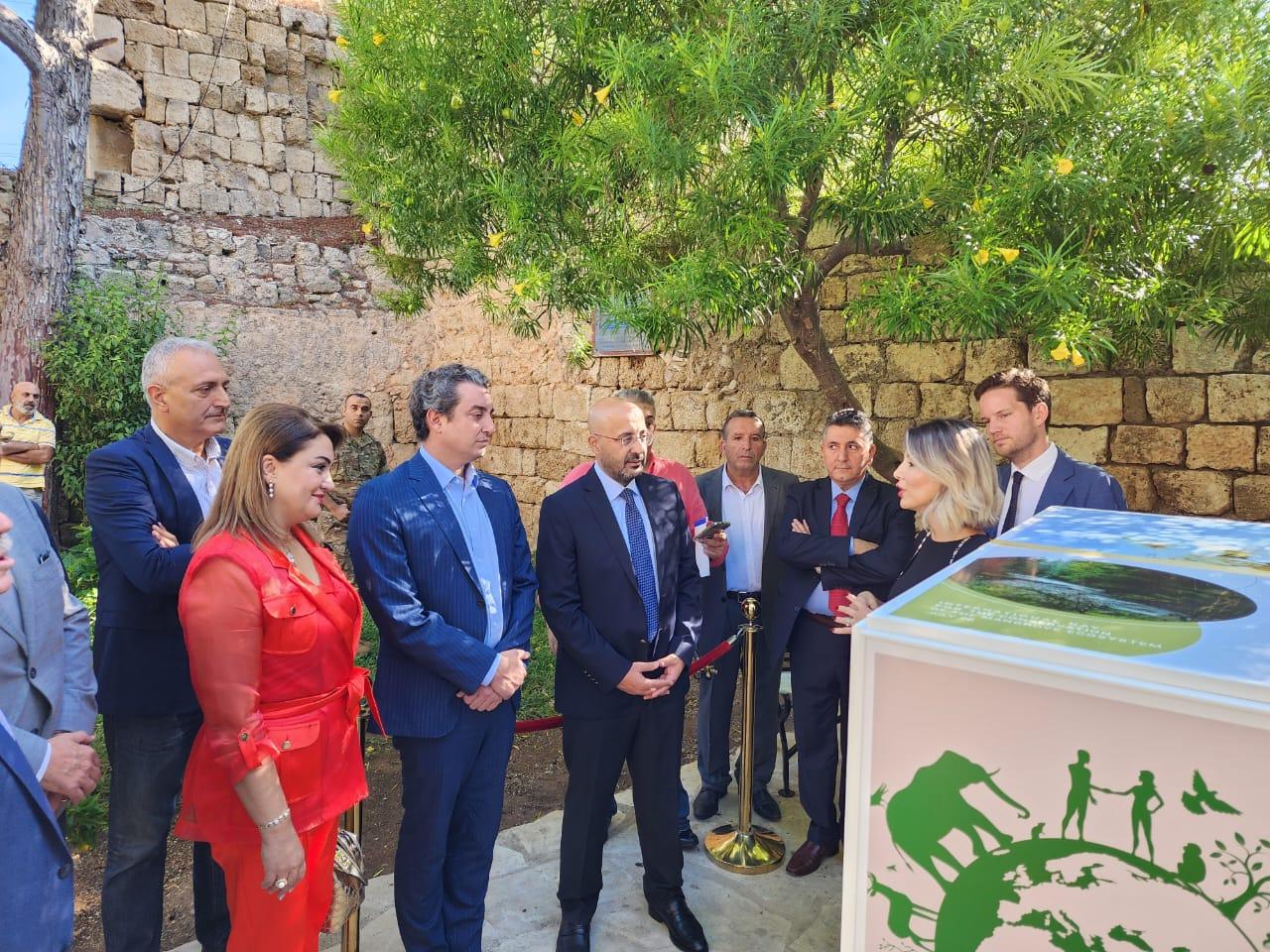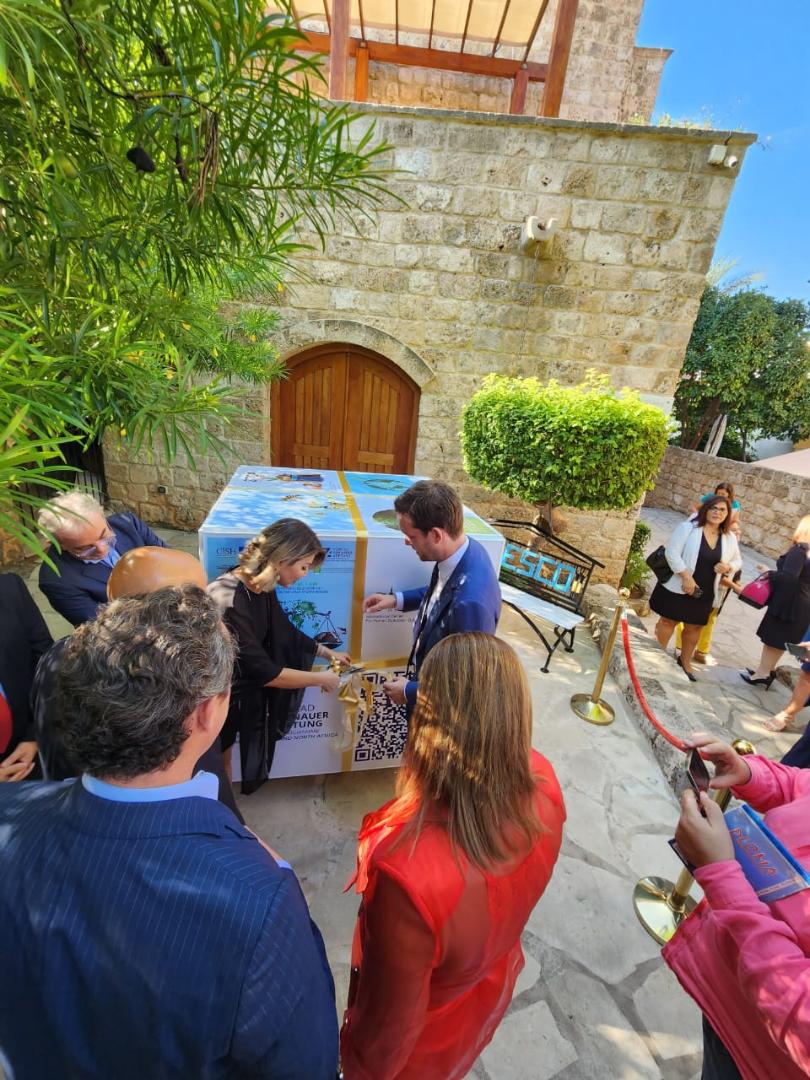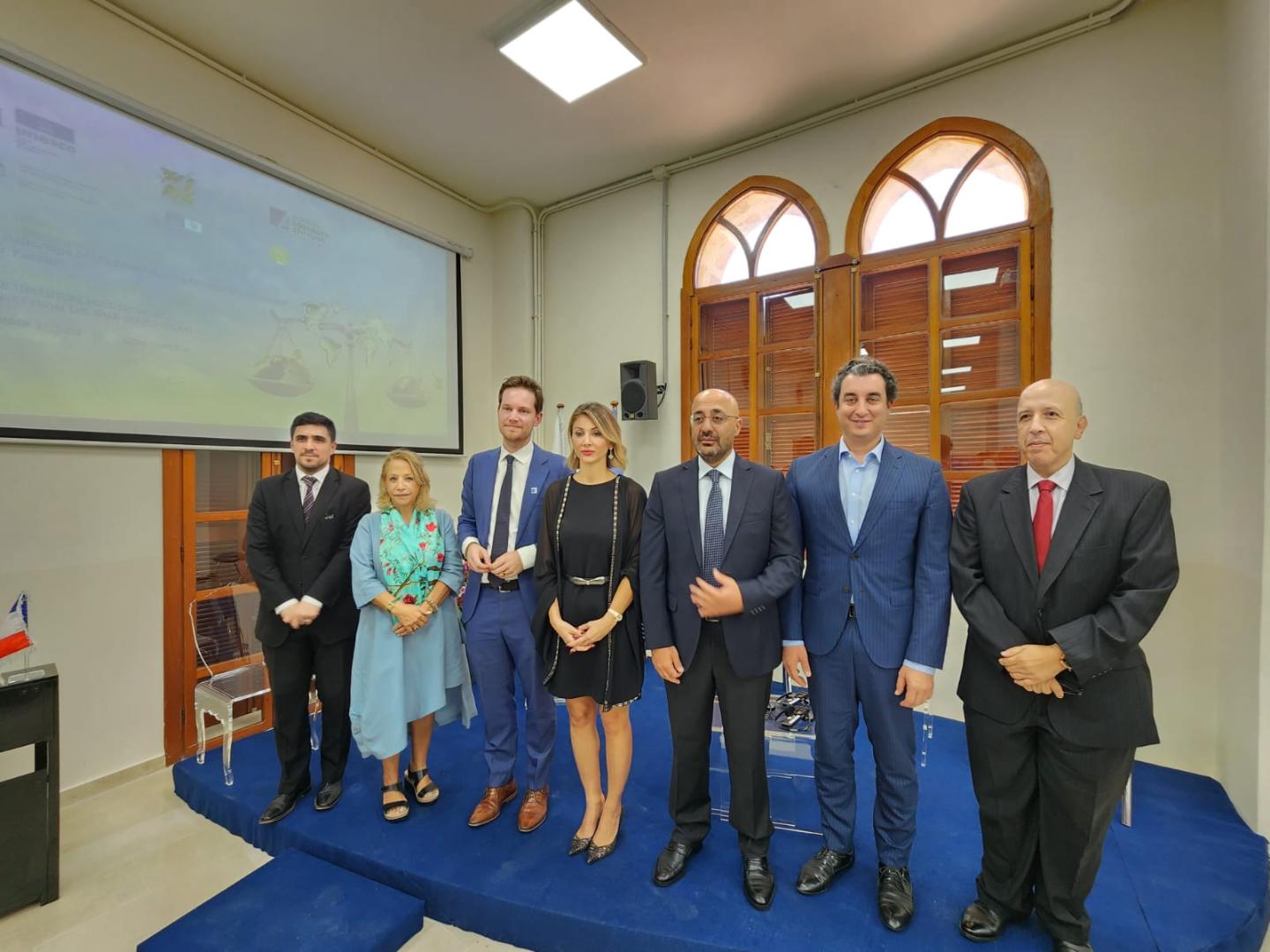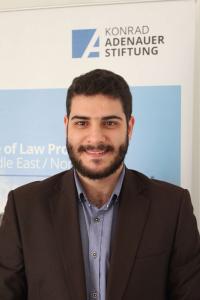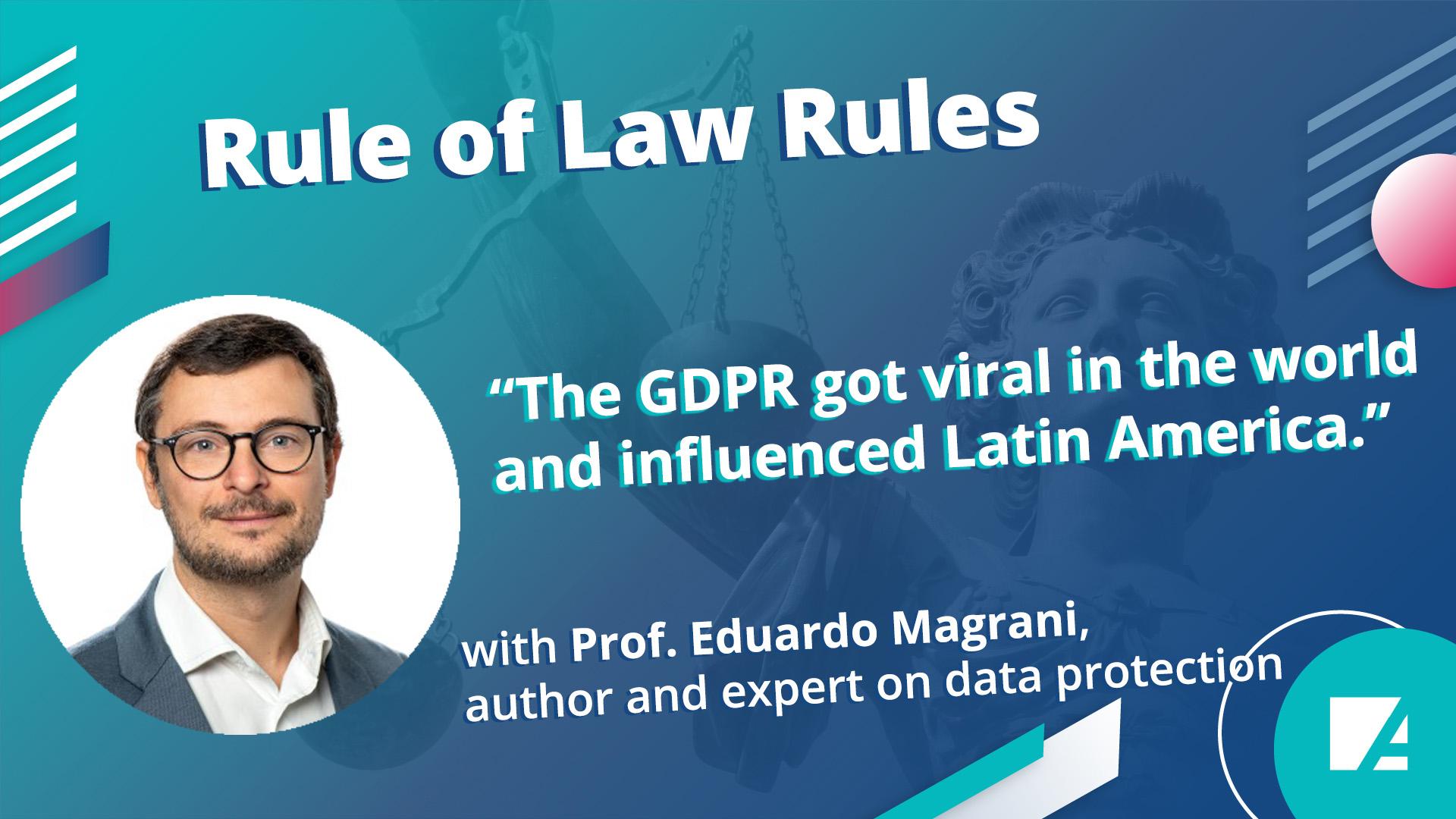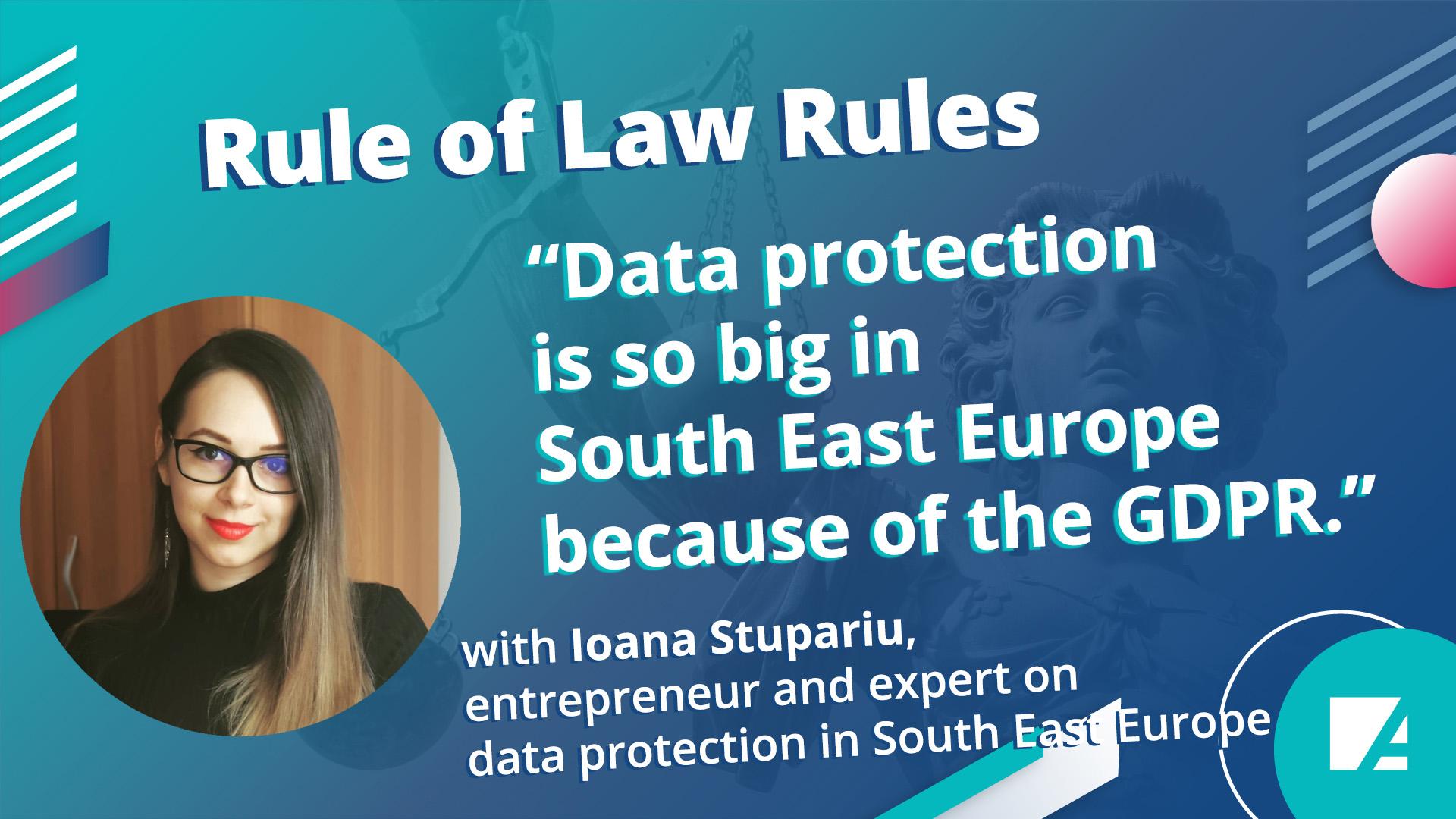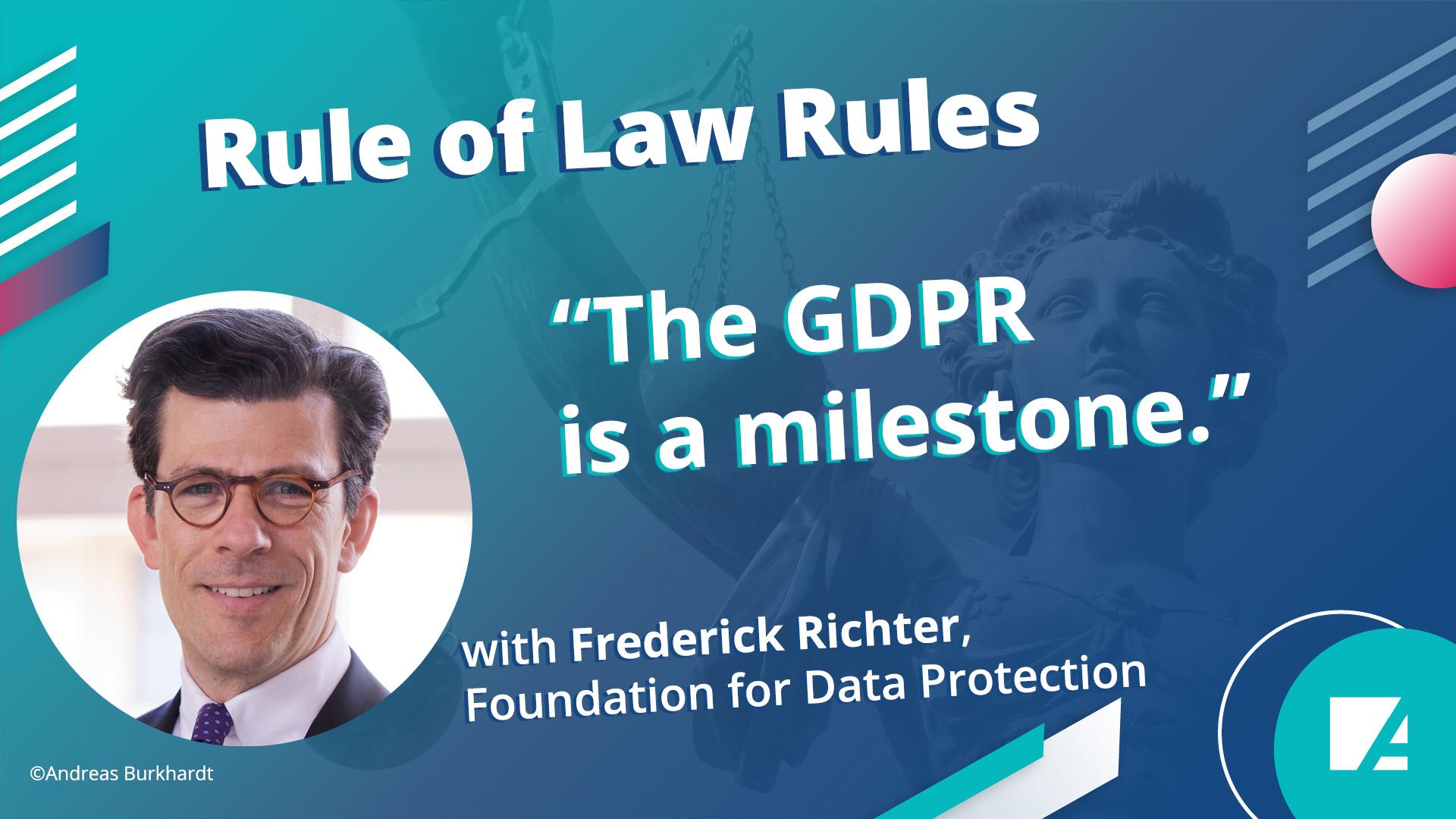The event started with the inauguration of a 3D cube model nearby the CISH premises, followed by welcoming remarks from Dr. Darina Saliba Abi Chedid, Director of CISH - UNESCO, Byblos. Dr. Chedid underlined the importance of protecting the environment and emphasized the paramount role of effective legislation in this field.
Mr. Philipp Bremer, Director of the KAS Rule of Law Programme Middle East and North Africa (MENA), stated that it doesn't take much time to realize how vulnerable human beings are, especially when it comes to natural disasters, mentioning some of the latest catastrophes the globe is facing.
In the next opening remark, Professor Riyad Fakhri, Vice Chair of the Association of Environmental Law Lecturers in Middle East and North African Universities (ASSELLMU) took the stage. He mentioned that environmental issues shouldn't be considered as national and individual issues, instead they should be considered as international and social ones.
The last opening remark was held by H.E. Dr. Nasser Yassin, Lebanese Minister of Environment. He pointed out that the main reasons behind the lack of respect towards our environment, at least in Lebanon, are, in fact, the weak institutions and the non implementation of a clear environmental justice.
The regional conference was divided afterwards into 3 sessions, having each a specific thematic. Each session was made up of 3 experts. The latter held respective speeches - they were as following:
The first session, entitled "Advancing Legal Tools: A Major Priority to protect the environment".
1)- Professor Riyad Fakhri
Professor Fakhri's speech was about: Criminal protection of the environment and that it is time to expand the crime and increase the punishment.
Prof. Fakhri said that: "What is legal is what the law says. And what the law says is what we agreed upon. Thus, a consensus is always needed, even to criminalize a clear criminal act".
He mentioned that on the international level, criminal acts are grouped into five types. Thus, having a more general definition of what environmental damage is, is crucial.
Prof. Fakhri described the crimes against the environment as "hidden crimes" and as a "silent terrorism".
2)- Judge Iyad Bardan
Judge Bardan is the current environmental prosecutor in the Bekaa region of Lebanon. His speech tackled the role of judges in the advancement of Environmental Law.
He began by mentioning that we do have a wide set of laws but we are witnessing an absence of a clear and general national environmental strategy. In his opinion, moving from villages to cities and from agriculture to food industry, played a big role in creating a new type of consumers and consumption habits, that affected the way we perceive the environment surrounding us.
What was a bit daring is judge Bardan saying that awareness, citizenship and a feeling of love to our nation are the real pillars that will protect the environment, not implementing the laws nor increasing the sanctions.
He pointed out the main and different cases he encountered in the bekka region of Lebanon in the last 5 years - counting more than 3000 pursuit investigation - having to deal with understaffed and unequiped internal forces, finding difficulties to enforce court decisions.
3)- Professor Hilary Christina Bell
Assistant Professor at Hamad Ben Khalifa University College of Law (Qatar)
Prof. Bell explaimed the 4 pillars (goals of education) of the UNESCO: i)- Learning to know; ii)- Learning to do; iii)- Learning to live together (we can't tackle Environmental problems alone); and iv)- Learning to be.
Education, as she said, is a vital tool. To develop a person, a responsible individual is what counts - suggesting an enquiry based learning as a future basis for the environment teaching.
The second session, entitled "Fundamental challenges of Environmental Law from a human rights perspective".
1)- Dr. Jinan Bastaki
Associate professor at UAEU and Oxford university (UAE)
Dr. Bastaki tackled the Environmental Law and future displacements (human rights and refugee law).
She highlighted the fact that environmental changes are affecting human life in a lot of places, which is the most important right we have as human beings, which is the right for life - urging for concrete solutions.
2)- Mr. Habib Maalouf
A Lebanese expert and journalist. His speech was entitled: Environmental Law and governance issues.
A big part of his speech was mentioning the environmental damages, we as humans are causing. He asked: What about future generations? Are we thinking about them ? He questioned the right to property by saying: can anyone appropriate the underground water? Aside, he mentioned the risks of genetical modification that threatens biodiversity which can be of a vast and irreversible damage to the environment.
3)- Dr. Jack Williams
Adjunct Professor, president of the institute for global negotiation (American University of Kurdistan, duhoq, Iraq).
Dr. Williams explained the regulatory, political and practical challenges that hinder the transition towards a more sustainable future, one of those being international treaties and agreements. He stated that any transition must be a just transition, pointing that in case of failure to do so, environmental degradation and human rights violations will continue.
The third session, entitled "Thinking the issues of Environmental Law geographically - perspectives of the middle east".
1)- Mrs. Christina Abi Haidar
Attorney at law - governance and development specialist, environmental, energy, oil & Gas Lebanese legal expert. She joined the conference via zoom. She tackled the national and international energy and environmental law with an emphasis on the MENA region.
Mrs. Abi Haidar said that a "joint effort is required to face environmental challenges" especialy the environmental issues related to energy, since the energy concept relies on mutual interest. She, then, highlighted the big difference between energy Law and environmental law, stating that both have their complexity and can be considered as separate.
She ended her speech by saying: "we need to think globally but we need to act locally".
2)- Dr. Omar Al Khataibeh
Dr. Al Khataibeh is the director of the jordanian association for climate and sustainable development.
Dr. Al Khataibeh contribution was about discussing the Arab cooperation for the protection of the environment and for the achievement of the Paris agreement goals promoting sustainable development in the Arab countries.
Dr. Al Khataibeh said that even though we have 195 states that signed the Paris agreement, we, as an international community, are still incapable.
He mentioned that "we are in a three-faceted type of need, we are in need for: a)- creativity / innovation; b)- education; and c)- training".
Dr. Al Al Khataibeh added that having Arab treaties is not enough, human resources and funds must be available too. Emphasizing not also on the role of individuals but also on the role of institutions, entities and states.
3)- Dr. Zeina Moneer
Dr. Moneer is a postdoctoral fellow at the research institute for a sustainable environment of the American University in Cairo, Egypt.
She tackled the environmental activism and the role of environmental civil society.
Dr. Moneer stated the fact, that indeed, we have witnessed some countries lifting the ban on NGOs' work, but due to political restricted environment, the current situation of civil society in the region is still not that bright, especially when it comes for funding.
Regardless of the problems that the region is facing we are in a midst of an inaction situation, she said. Dr. Zeina was also optimistic by stating that some positive trends are on track.
Afterwards, recommendations were written down - a full report summarizing key recommendations is available online (see link on the right).
To point out, each session was followed by a Q & A session and a lively discussion.
At this point, the regional conference came to an end.
As a Conclusion:
One of the main targets that was reached during this conference, was to explain and highlight the characteristic of an environmental crime, having as affected and victims not just individuals but also entire communities and groups, including future generations.
Furthermore, having a lot of NGOs and entities working solely will surely decrease their overall efficiency - which is the case in most of the countries. In addition and from a legal perspective, plurality of legal texts might cause confusion and a lot of times it appers to contradict each one another. Not applying the law will lead to inequality. The absence of rule of law and the ruling of laws is a main issue for environmental disrespect and violations. Some environmental crimes and violations most not have any time limitations such as prescription period. Specific environmental courts should be established in every country and region, alongside an environment prosecutor.
Moreover, spreading education and encouraging cooperations will help to overcome the lack of will, expertise and know how that we are facing. Bearing in mind any possible financial repercussions for new environmental stipulations, we should talk from now on about a new concept which is "the environmental good governance".



